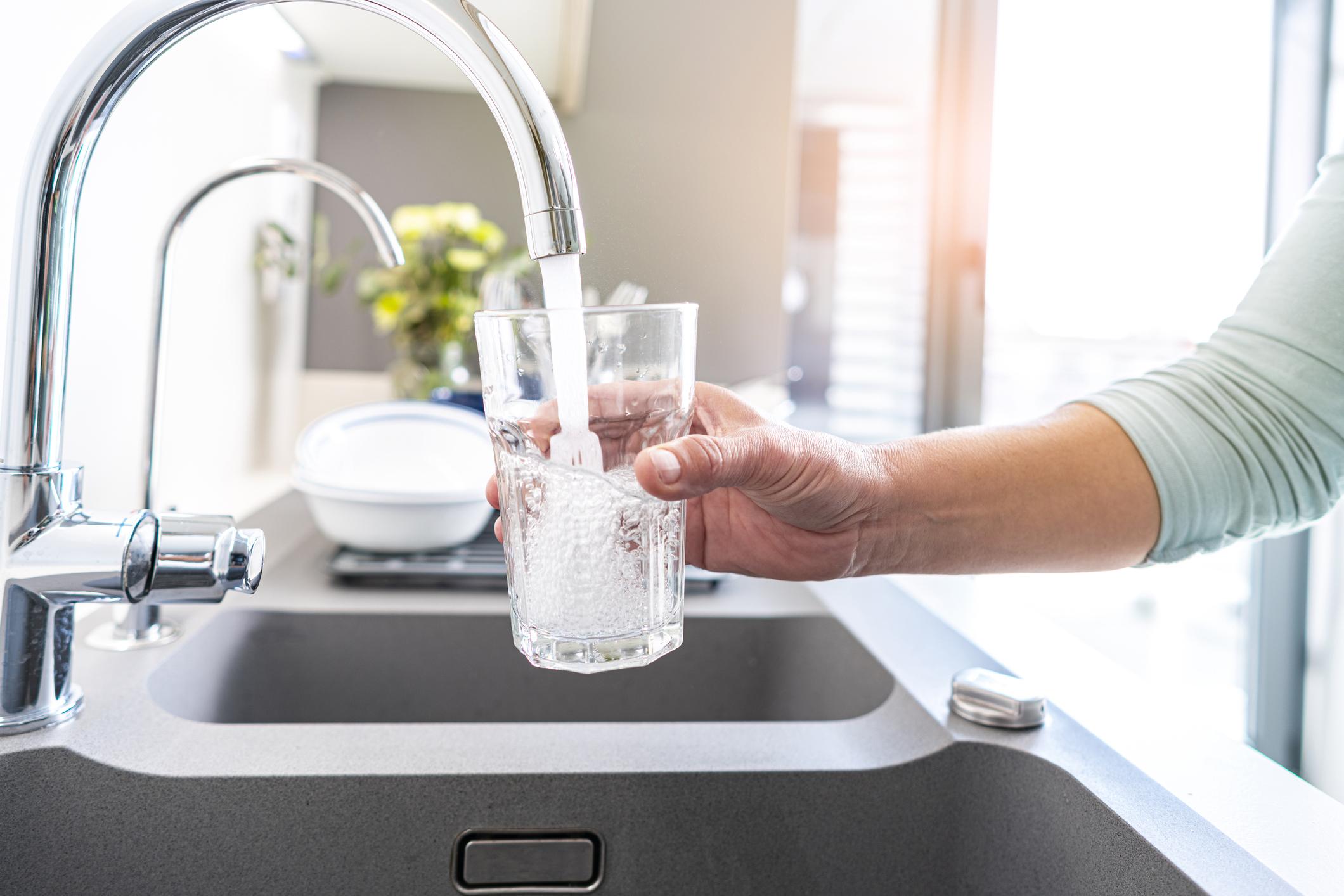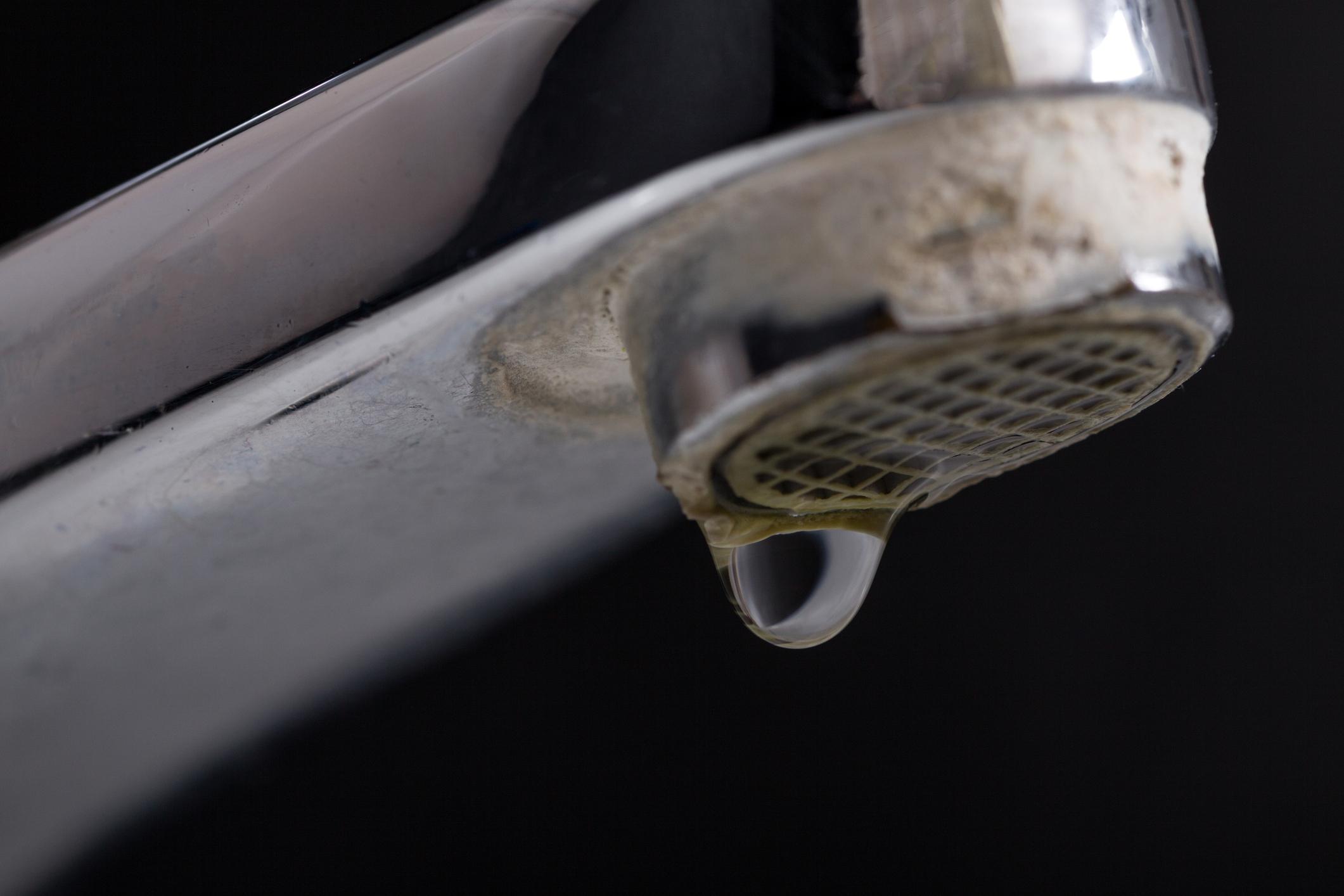

Tap water is convenient, cost-effective, and 100% safe to drink in the UK. It would be difficult to get by without running water, even for a day or two.
Often, we drink from the tap because it’s second nature to do so. Some households report issues with their tap water, such as:
- Bad tastes
- Cloudiness
- Strange odours
Water is such a vital part of our daily lives that it’s worth understanding what you’re using to drink, bathe, and cook with – and how to ensure your tap water is high-quality.
Good tap water should make your life easier, not leave a bad taste in your mouth. In this article, we’ll cover everything you need to know about the quality of UK tap water.
What’s in UK tap water?
Most tap water in the UK includes minerals like calcium and magnesium, as well as small amounts of chlorine, added as part of the water treatment process.
Harmful ‘forever chemicals’, bacteria, viruses, and heavy metals are all removed before the water reaches your tap. Some parts of the UK also include small amounts of fluoride in tap water to potentially improve dental wellbeing.
The contents of your tap water can also vary according to how old your house is, with some pipes leaving traces of iron, lead, or manganese in your tap water.
Regardless, all tap water in the UK is safe to drink unless your local authority issues a specific warning. In these cases, bottled water is usually supplied to your area for people who need it.
This is fairly rare, as UK water passes over 99.95% of quality tests, making it some of the safest in the world.
Where does UK tap water come from?
All water in the UK starts life as rain. However, the exact source of your tap water varies depending on where you live. Common locations include groundwater, rivers, lakes, reservoirs, or even the sea. In England, this split is as follows:
- 64% from surface water sources like reservoirs, lakes, rivers, and the ocean.
- 30% from groundwater sources like aquifers, where water slowly seeps into the ground before being collected.
- 6% of England’s drinking water comes from unspecified sources, which can include recycled wastewater.
Recent studies have shown that untreated wastewater is ‘regularly dumped’ into rivers and other bodies of water, so this may vary – even if water is originally collected from a surface water source, pollution may muddle these figures somewhat.
Are there contaminants in UK tap water?
Given how diverse the UK’s water sources are, it’s not surprising if a few contaminants make their way through our taps. However, how many of these might you expect to find in your own tap water?
Limescale
Most commonly found in areas with hard water, limescale is the byproduct of water rich in calcium and magnesium. While it isn’t harmful to drink hard water from your tap, limescale can leave unsightly stains that make it harder to clean your surfaces, and eventually degrade the performance of your kettles and other appliances.
By using a water softener, you can eliminate limescale and save 20-64% on energy bills per year, thanks to improved efficiency when cleaning and using certain appliances.
Check the water hardness in your area to see if a softener will be worth it for you.
Fluoride
Fluoride has been a common additive during the water treatment process since 1964. This is because fluoride has long been perceived as good for dental wellbeing, especially at the minimal levels found in treated tap water.
Microplastics
Microplastics are an increasing concern for people around the world. Essentially, tiny plastic particles can shed from clothes, paint, and cosmetics that enter the water system, and eventually contaminate the same water we use to drink and bathe.
The amount of microplastics in our drinking water remains unclear, with some sources finding microplastics to be present in 72% of samples, while others imply 99.9% of samples from treatment facilities are plastic-free. Regardless, many are still concerned.
Lead and other metals
While rare, lead and other metals can be an issue when living in buildings with older plumbing systems. Lead in particular is a concerning potential contaminant, as this may be harmful to your wellbeing in certain doses.
Soft water areas are more at risk of issues with lead contamination, as limescale build-up in pipes can actually prevent metals from contaminating your drinking water.
Microorganisms
It is increasingly rare for any unwanted bacteria or viruses to contaminate tap water. This is especially true in the UK, where public water warnings are rarely issued. As water is disinfected with chlorine, any trace bacterium is extremely unlikely to be harmful.
Chemical contaminants
Chlorine is often found in trace amounts in tap water. This is because it’s used as part of the treatment process to eliminate unwanted bacteria and viruses from your tap water.
While chlorine in trace amounts will not be harmful to your wellbeing, it can still come with an unpleasant taste or smell that leaves some people reluctant to drink unfiltered tap water.
Should you filter tap water?
While it is not strictly necessary to filter your tap water for health reasons, you can increase the quality of your tap water through filtration. This is especially effective if your water tastes bad, has a strange smell, or appears cloudy.
Water filters can:
- Remove any lingering contaminants present after water treatment, like chlorine. This often goes hand-in-hand with an improved taste and smell.
- Provide peace of mind – using a filter, you can be assured your water is of the highest quality.
- Be better for your budget, as you can save on buying bottled water or spending energy boiling water to make it palatable. This also makes at-home water filter systems or jugs a great option for eco-friendly households.
- Eliminate the need for constant maintenance and refills, which you might need with filtered water jugs. Instead, many water filter systems need replacing just once a year.
- Retain certain contaminants you may want, like calcium and magnesium, which many prefer to keep in their drinking water. Alternatively, a drinking water tap can provide access to hard, soft, or boiling water on demand.
Should you soften hard tap water?
While a water softener isn’t necessary if you just want to drink tap water, it can help save money in the long run by reducing the amount of soap you use and helping your appliances function properly, with no limescale buildup.
Soft water is also great for increasing the enjoyment of hot drinks like tea or coffee, as you receive the full flavour without any added minerals.
UK tap water: is it safe or bad for you?
While all tap water is safe and relatively high-quality, there are still benefits to softening and filtering it. Peace of mind is one thing, but many people also cite improved taste, fewer odours, and an easier time cleaning as a result of using a water filter in connection with a water softener.
If you want to enjoy water that contains calcium and magnesium without any unwanted contaminants, you can also consider a drinking water tap, which can provide softened or unsoftened water according to what you need.


